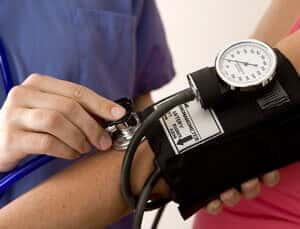
Many of our readers would prefer to stay as healthy as possible through natural approaches. They would rather avoid the side effects of medications and use diet, exercise and other means to reduce their likelihood of health problems. We heard from one admirable woman in her 90s.
A Healthy Nonagenarian:
Q. Dear People’s Pharmacy,
On my daughter’s recommendation I have now joined your fan club and subscribe to your newsletter. I am 91 years old, in very good health, active and a community volunteer. I still drive my car (passed a collision avoidance course) and take my vitamins.
Five years ago I was on blood pressure pills but wanted to get off them so I changed my lifestyle, started exercising and walking and really trying to eat very well and it worked. Now I may not be quite as religious with everything as I was and my blood pressure is now inching up, especially when I go for my regular doctor check up and to my dentist.
When I measure my blood pressure at home the reading is usually in the 130’s, but on occasion it will be in 150’s. For instance I found out I was to go into the hospital for a cataract operation today, and when I got home I took my pressure and it was 170 over 69 and my pulse was 70.
I do not want to go back onto medication. Could you tell me if there are other things or foods I can do or eat that will help me stay off pills?
Thank you, Olive B.
A. Olive, we are honored to have you as a member of the People’s Pharmacy family of newsletter subscribers. You are a role model for others because, at age 91, you are doing everything right!
White Coat Hypertension:
You are probably experiencing a bit of white-coat hypertension. When people visit their doctor (or dentist) it is not so unusual to see blood pressure rise. And the anxiety associated with surgery, even something as routine as a cataract operation, can cause blood pressure to rise.
If your blood pressure is normally in the 130/80 range, you may not need to go back on medicine, though you should keep a diary and show it to your physician for analysis. Here is a link to a controversial report that suggests treating mild to moderate high blood pressure like yours with medication does not necessarily lead to long-term benefit and reduced mortality.
Natural Ways to Control Blood Pressure:
There are many other things you can do to keep your blood pressure under control. They include:
• Keep walking. Regular exercise is very helpful.
• Manage your stress. Whenever you suspect you are feeling anxious start breathing deeply. If you sit quietly and take six to eight deep diaphragmatic breaths a minute your blood pressure is likely to come down.
• Try the DASH diet (Dietary Approaches to Stopping Hypertension). It includes:
- 4 servings of fruits
- 4 servings of vegetables
- 2-3 servings of low-fat dairy
- whole grains
- nuts, fish & poultry
- very little red meat, sweets or sugary drinks
• Include juice (beet, pomegranate, grape, cherry) in your diet. These juices can lower blood pressure
• Eat a little dark chocolate or drink some cocoa. Studies show that chocolate or cocoa can also lower blood pressure.
• If your kidney function is fine, consider a little extra magnesium (250 to 300 mg). It can be helpful and may also ease constipation.
These are just some of the many hints we have collected over the years. We so impressed with your story and your healthy habits that we want to send you free copies of our books. They have a great deal more detail about non-drug treatments for a variety of conditions including high blood pressure.
Quick & Handy Home Remedies from The People’s Pharmacy
Recipes & Remedies from The People’s Pharmacy
Anyone else who would like to find our publications and products to help stay and healthy as Olive may find something of value by clicking on this link.
How Low Should You Go?
There is some controversy over exactly how low elderly people should push their blood pressure. The SPRINT experiment demonstrated that for people over 50 with hypertension and a high risk of cardiovascular complications, getting systolic blood pressure close to 120 rather than 140 made a small but significant difference. A recent meta-analysis agrees that intensive blood pressure control helped people with chronic kidney disease live longer (Malhotra et al, JAMA Internal Medicine, online Sep. 5, 2017).
On the other hand, Spanish investigators report that the elderly are frequently overtreated for hypertension (Baena Diez et al, Medicina Clinica, online Aug. 31, 2017). Some studies suggest, however, that strict blood pressure control in the middle years and slightly less strict (or intensive) control among the elderly can help people maintain their cognitive function better. Following the healthy living guidelines above should help both blood pressure and cognition.
Revised 9/7/2017

